Future Scope & Benefits: Graduates gain expertise in crop physiology, enabling roles in agricultural research, consultancy, and agribusiness. They contribute significantly to global food security, sustainable farming, and environmental conservation.
Future Scope & Benefits for Master of Science Agriculture (M.Sc. Ag.) in Crop Physiology Course
Agriculture has been the backbone of human civilization for thousands of years, providing food, fiber, and fuel for sustenance and development. In recent times, the field of agriculture has undergone a significant transformation due to technological advancements, environmental challenges, and increasing global population demands. To meet these challenges, specialized knowledge and skills in various agricultural disciplines are essential. One such discipline is Crop Physiology, and pursuing a
Master of Science (M.Sc.) in Crop Physiology can be a promising choice for individuals interested in advancing their careers in agriculture.
Future Scope of M.Sc. Ag. in Crop Physiology
The future scope of an M.Sc. Ag. in Crop Physiology is promising and diverse. Here are some of the career opportunities and avenues that graduates can explore:
-
Research and Development: Graduates can work in research institutions, agricultural universities, and private research organizations to conduct cutting-edge research in crop physiology. They can contribute to the development of new crop varieties, cultivation techniques, and stress-tolerant crops.
-
Agronomists: Agronomists play a crucial role in optimizing crop production. Crop physiologists can work as agronomists, advising farmers on crop management practices, nutrient management, and pest control strategies.
-
Crop Consultants: Graduates can become crop consultants, providing specialized advice to farmers and agricultural businesses on how to improve crop yields and quality while minimizing environmental impact.
-
Teaching and Academia: Those interested in education can pursue teaching and academic careers. They can become professors or lecturers in agricultural universities and colleges, shaping the next generation of agricultural professionals.
-
Crop Biotechnology: The knowledge of crop physiology is valuable in the field of crop biotechnology. Graduates can work in biotechnology companies that focus on genetically modified crops and other advanced technologies.
-
Government Agricultural Departments: Many government agricultural departments and agencies hire crop physiologists to work on agricultural policy development, research, and extension services.
-
Environmental Consulting: With a focus on sustainable agriculture and environmental impact, crop physiologists can work as environmental consultants, helping businesses and farms implement eco-friendly practices.
-
Ph.D. and Research Fellowships: Graduates can pursue a Ph.D. in Crop Physiology or related fields and engage in in-depth research. They can also apply for research fellowships and grants to fund their research projects.
-
International Agricultural Organizations: International organizations like the Food and Agriculture Organization (FAO) and the Consultative Group on International Agricultural Research (CGIAR) often hire experts in crop physiology to address global food security challenges.
Benefits of Pursuing M.Sc. Ag. in Crop Physiology
Pursuing an M.Sc. Ag. in Crop Physiology offers numerous benefits, both in terms of personal and professional growth. Here are some of the key advantages:
-
In-Demand Expertise: Crop physiology is a specialized field that addresses critical challenges in agriculture. Graduates with this expertise are in high demand in the agriculture sector, making it easier to find meaningful employment.
-
Contribution to Food Security: Crop physiologists play a vital role in enhancing crop production, which is essential for global food security. By pursuing this field, you can contribute to addressing the world's growing food needs.
-
Sustainability Focus: With increasing concerns about environmental sustainability, graduates in crop physiology are well-positioned to promote sustainable agricultural practices and reduce the ecological footprint of farming.
-
Research Opportunities: This field offers ample opportunities for research and innovation, allowing you to explore new frontiers in crop science and make significant contributions to agricultural knowledge.
-
Global Relevance: Crop physiology expertise is applicable worldwide, making it possible for professionals to work in different countries and collaborate on international agricultural projects.
-
Competitive Salaries: Careers in crop physiology are often well-compensated, reflecting the specialized nature of the work and its importance in agriculture.
-
Personal Fulfillment: If you have a passion for agriculture and a deep interest in understanding how crops grow and thrive, pursuing an M.Sc. Ag. in Crop Physiology can be personally fulfilling.
-
Diverse Career Options: Graduates have a wide range of career options, from research and academia to consultancy and policy development, allowing them to tailor their careers to their interests and goals.
 2 Years
2 Years
 Post Graduate
Post Graduate
 Agriculture
Agriculture



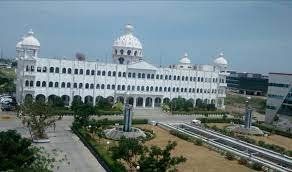
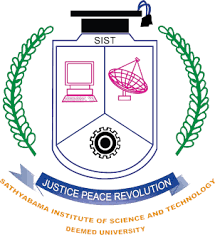


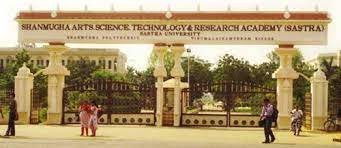
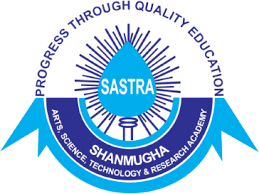
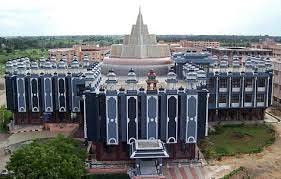




 back
back